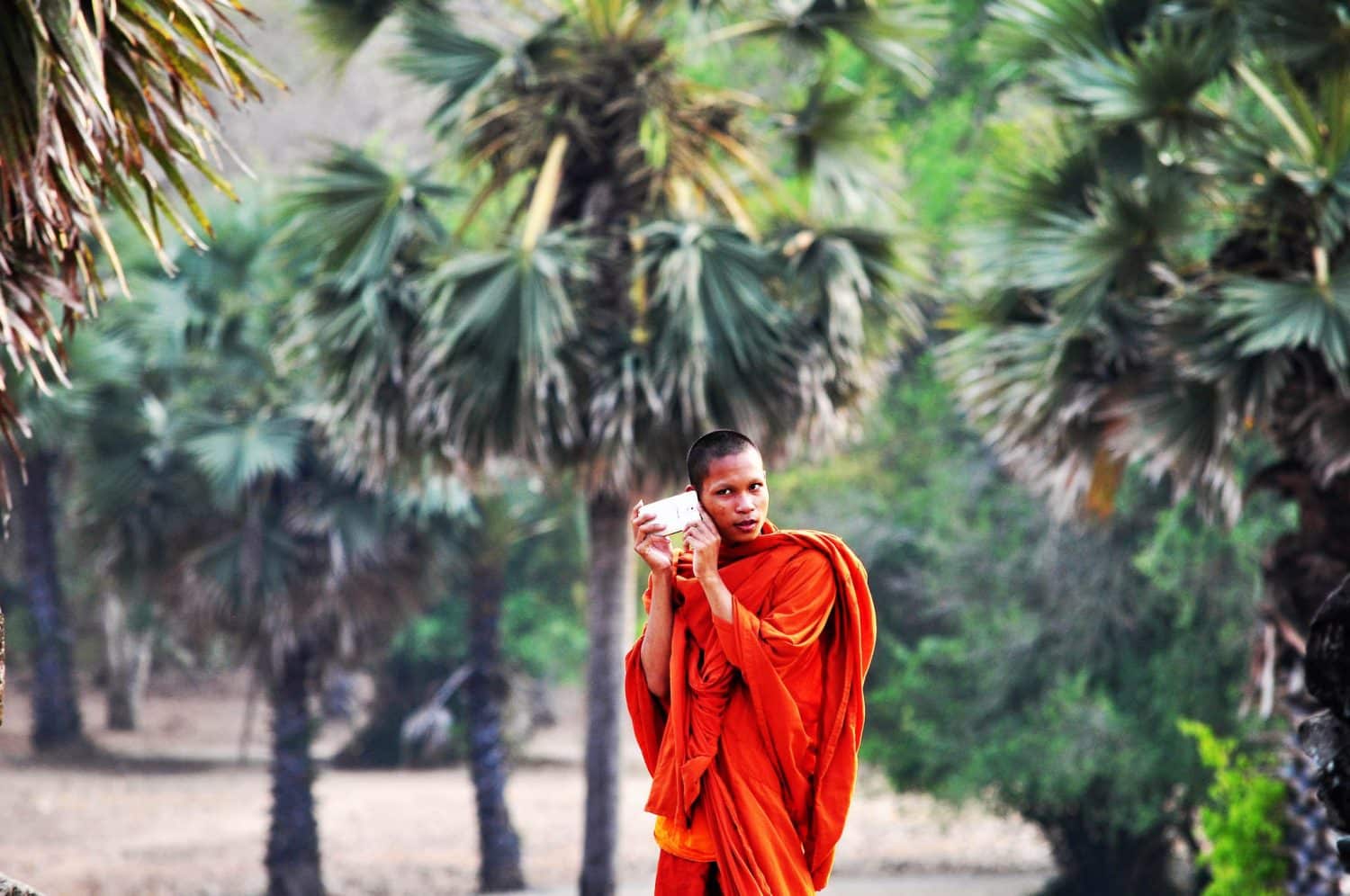Wondering what language is spoken in Cambodia? The Cambodia official language is Khmer and with some effort, you’ll be leaving this page with 10 essential Cambodian phrases in your pocket!
Are you worried that you may not be able to learn Cambodian well and communicate with the locals? Although many Cambodians speak some English, especially in touristy cities such as Siem Reap and Sihanoukville, there are also plenty who don’t speak much English at all! Don’t fret though! You CAN learn Khmer language easily and I’m here to help you out.
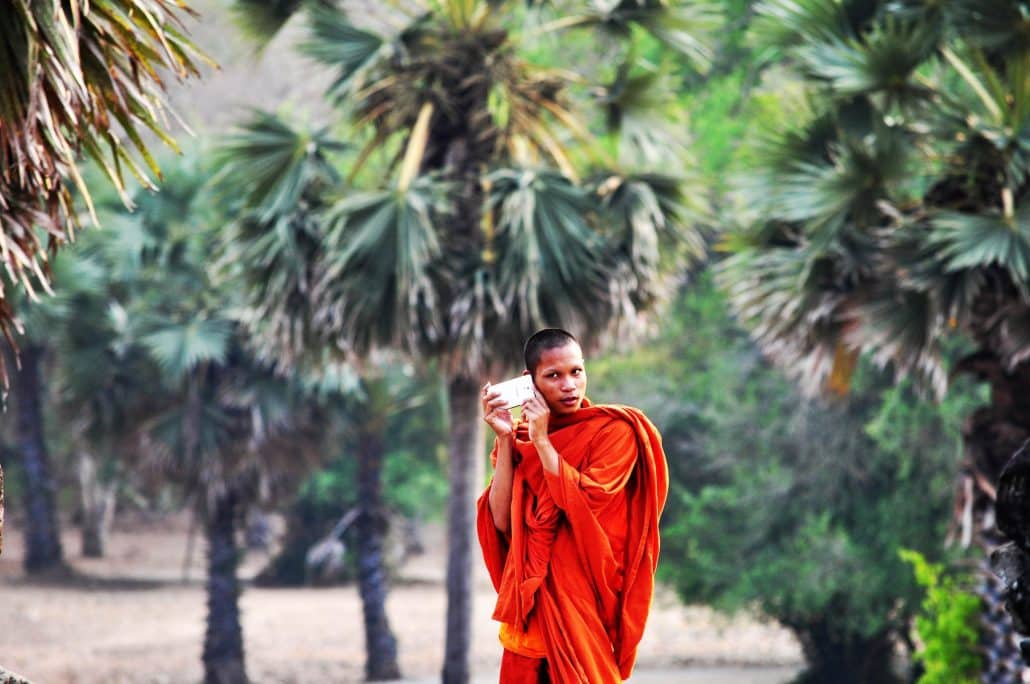
Why you should learn some Cambodian phrases
If you are visiting Cambodia for a long stay or just a few days, some phrases in Khmer (the Cambodian language) will definitely help you out!
Learning some Khmer words will be particularly useful if you are planning to venture off the beaten track, or if you are planning to spend much time in Phnom Penh.
Just knowing a couple of phrases will take you really far in Cambodia! Even if you’re only exploring the temples and the beach; knowing the Khmer language will help endear you to the people you meet, and may get you some discounts as well! Now that would be good wouldn’t it!
You’ll be switching from English to Khmer in no time at all, and be able to translate Khmer to English in your head like a boss! Let’s get to it!
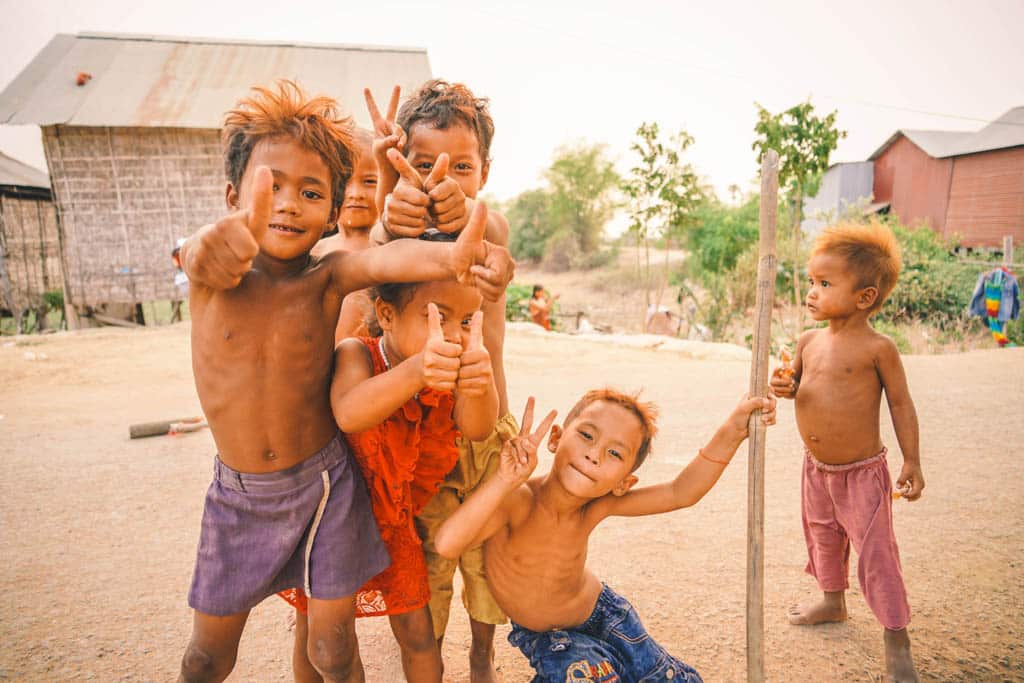
How hard is the Khmer language?
Trying to learn Khmer pronunciation can be challenging, as there are some strange sounds that have no equivalent in English. Yet, you will find that locals usually aren’t shy about you on how to pronounce Khmer. You’ll be able to learn quite fast and change from English to Cambodian easily.
Let’s get you off to a great start with out English to Khmer translation with pronunciation.
These essential Cambodian phrases will make your Khmer study easy and your adventure to Cambodia a successful one!
Best Cambodian Phrasebook
Everything you need to know: shopping, eating, transport, accommodation.
How to be polite in Khmer
The Khmer language and its phrases change depending on who you are talking to, as a sign of respect.
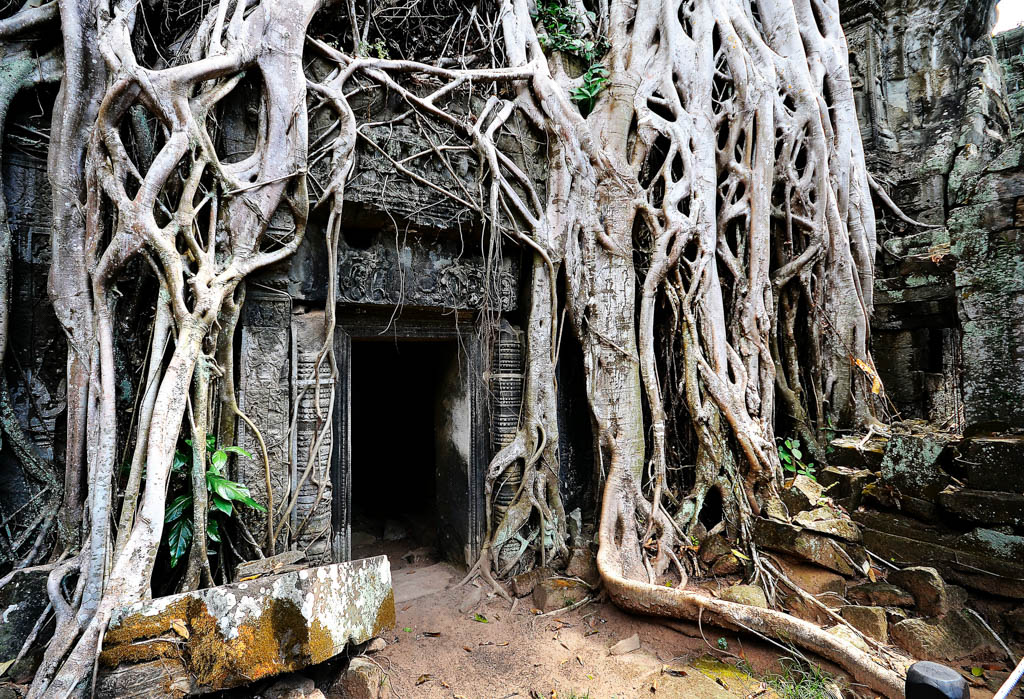
In this guide you will find the standard transcription for each phrase, and a pronunciation guide which is as phonetic as possible. Capital letters show the stressed syllables.
How to say hello in Cambodian
Let’s learn how to say hello in Khmer! There are a couple of different ways to say hello in the Cambodian language, depending on how formal you want to be. Both of these phrases can be used at any time of day.
Formal Hello
When you are meeting someone older or more important than yourself, you should use the formal ‘jom reab suar’. It is pronounced ‘jom REE-up SOO-wer’.
Informal Hello
When you meet someone who is the same age or younger than yourself, you can use the informal ‘suasdey’. It is pronounced ‘SOO-wer sa-DUH-ee’.
Good morning
If you would like to say ‘good morning’ in Khmer, you can say arun suasdey. It is pronounced ‘Arun SOO-wer sa-DUH-ee’.
Extra culture points!
For a traditional Cambodian greeting, it is polite to use the ‘sampeah’, a gesture performed by placing your palms together in front of your body like the Thai wai. The height of the sampeah varies depending on how formal you want to be. When meeting someone older than yourself, your fingertips should touch your nose, but when you meet someone your own age, a sampeah at chest height is fine. Urban Cambodians may offer Westerners a handshake but will be pleased if you know the sampeah.
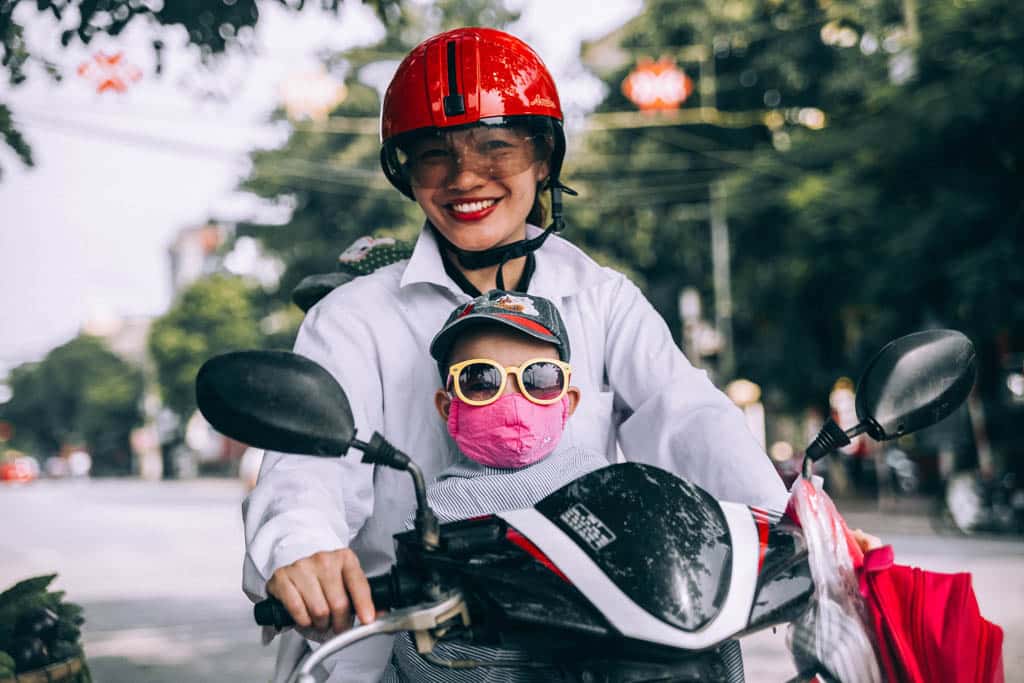
How to say goodbye in Khmer
Saying goodbye in Cambodian is not difficult either. Let’s give it a go shall we?
Formal Goodbye
Say ‘jom reap lia’. It is pronounced ‘jom REE-up LEE-er’.
Informal Goodbye
Say ‘lia haeuy’. It is pronounced ‘LEE-er HIGH’.
Saying ‘How are you?’ in Khmer
Sok sabai literally means “safe and happy”. This phrase is great because you can use it to ask how someone is, to say that you are fine, and to wish someone well at the end of a conversation. How’s that for multipurpose?
How are you?
Be a pro by saying the following: sok sabai te (sock sa-BYE tay).
I’m fine
If you are being asked you can reply ‘I’m fine’ by saying khnyom sok sabai (knyom sock sa-BYE)
Take care
Saying ‘take care’ is really easy. Just say the same word: sok sabai!
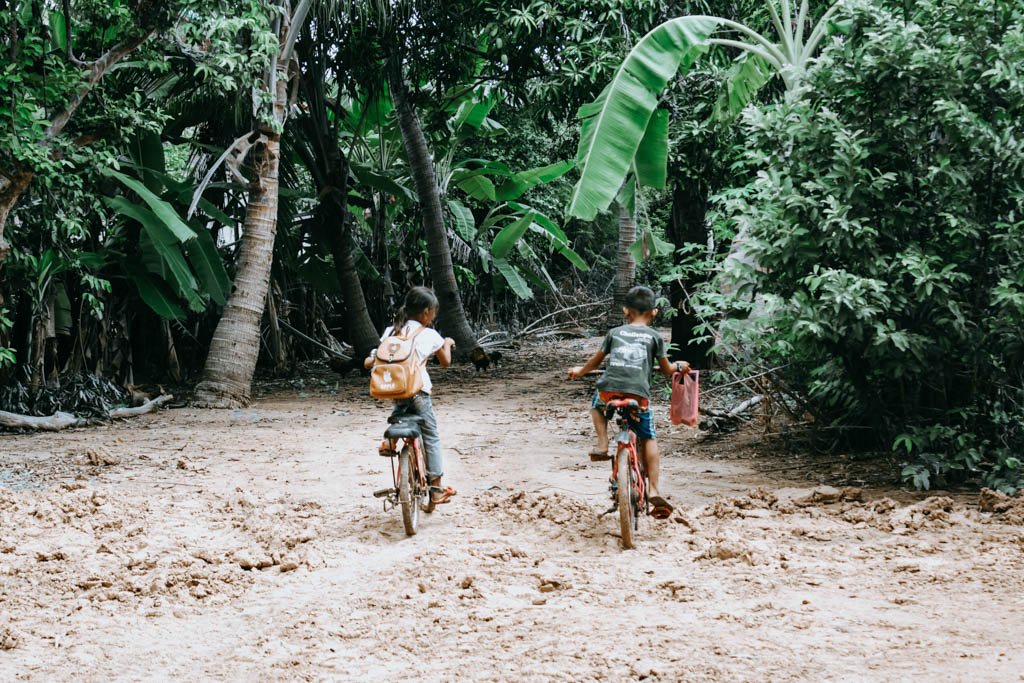
Best Cambodian Phrasebook
Everything you need to know: shopping, eating, transport, accommodation.
Saying thank you and no thank you in Cambodian
You are likely to be offered all kinds of things when walking down any street in Cambodia, including but not limited to tuk-tuk rides, massages, pedicures, postcards, books and souvenirs.
Vendors can be a little persistent but they usually aren’t pushy, and will leave you alone once they realise you’re not interested.
By learning to say no thank you in Khmer, you’ll be able to politely express your lack of intention to buy anything.
No thank you
You can say ‘ort te, or kun’ (ort-TAY or-KUN).
Thank you
Want to know how to say thank you in Cambodian? Cambodians are more economical with ‘thank you’ than, say, British people are.
Saying ‘or kun’ (or-KUN)just once at the end of a transaction is fine: no need to overuse it.
Save ‘or kun chraeun’ (or KUN CHRA-ern) for when you are feeling really extra-specially grateful.
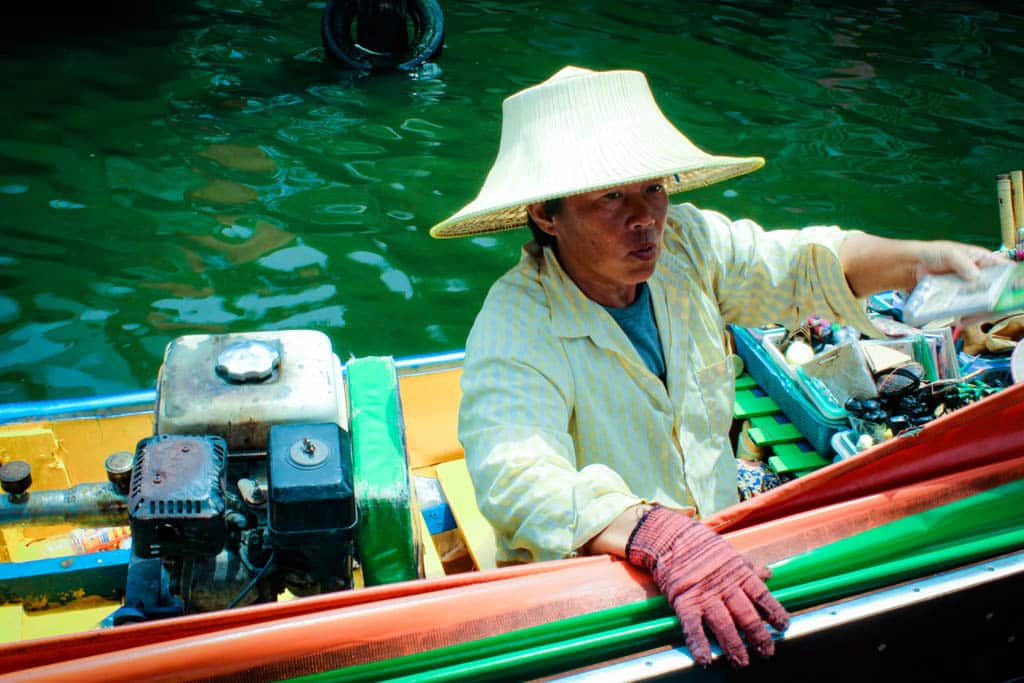
How to order a drink in Khmer
After a hard day’s temple-hopping in the sweltering heat, you’re thirsty. It’s understandable! Luckily you’re rarely more than a stone’s throw away from a big red cooler box full of ice-cold refreshments. Woohoo.
Cambodian beer costs from 2,000 riel (50c) for a can or glass of draft. The local big brands are Cambodia, Angkor and Anchor, and in order not to confuse the last two, you have to pronounce the ‘ch’ in Anchor the same as ‘ch’ in ‘cheese’!
A can of coke please
Som coca ma kompong (pronounced ‘som co-CA ma kom-PONG’)
A bottle of water please
Som tuk ma dorp (pronounced ‘som TUCK ma DORP’)
A bottle of beer please
som beer ma dorp (pronounced ‘som BEER ma DORP’)
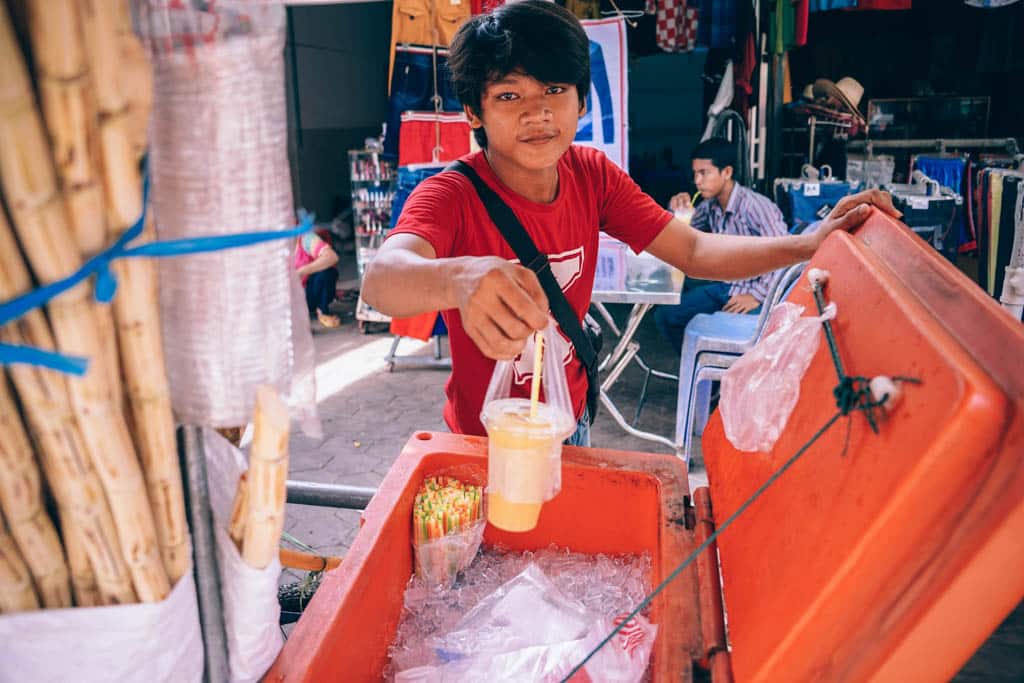
Buying something at the market in Khmer
Local markets are a great place to experience the sights, smells and sounds of everyday Cambodian life and pick up some bargains to boot. Haggling is expected, so don’t accept the first price you are given – offer a lower price and prepare to meet somewhere in the middle. If you speak a little Khmer and English, and negotiate in a friendly manner, you are likely to get a good result (although you will almost certainly still pay more than a local for the same product).
How much is this?
Ah nih thlai ponmaan? (ah NIH thlai pon-MAAN)
I’ll take one of these
Yoa nih muay (yo nih MOO-ee)
It’s too expensive!
Thlai nah! (tlayee NAH)
Khmer Numbers from 1 to 10
The good news is, when you learn the Khmer numbers from 1 to 10, things start to look familiar after you’ve learnt the first five. The word for six is formed by combining the words for five and one, and so on. Seven is a special case, as it is often called brampel as well as bram pee.
In Phnom Penh pronunciation, bram sounds more like pyam, but in most other Cambodian accents the ‘r’ is rolled as in Spanish.
1 = muay (MOO-ee)
2 = pee (pee)
3 = bey (BUH-ee)
4 = buan (BOO-ern)
5 = bram (bram)
6 = bram muay (bram MOO-ee)
7 = bram pee / brampel (bram PEE / bram PULL)
8 = bram bey (bram BUH-ee)
9 = bram buan (bram BOO-ern)
10 = dop (dop)

Best Cambodian Phrasebook
Everything you need to know: shopping, eating, transport, accommodation.
Finding a guesthouse in Cambodia
Guesthouses and hostels in Cambodia are cheap and plentiful, and you can rent a basic room from just a few dollars per night. There isn’t really a specific word for ‘hostel’ in Khmer, but asking for ‘a cheap guesthouse’ will get the same result.
I’m looking for a cheap guesthouse
khnyom roa phteh somnak thaok (khnyom ROW pa-TEAR som-NACK TOWK)

Giving directions in Khmer
Rolling off the bus after an eight-hour ride, you hail the nearest tuk-tuk driver and tell him the name of your guesthouse. He merrily assures you that he knows exactly where it is, repeating the name back to you several times.
You realise he might not know where he is going half an hour later, when he stops another tuk-tuk driver to ask for directions. Checking Google Maps, you realise you’ve gone for miles in the wrong direction!
Many tuk-tuk drivers (especially in Phnom Penh) don’t know the English names for places, can’t read maps and don’t know street numbers. They often pretend to know where you want to go and hope they’ll work it out on the way.
Save yourself some trouble by looking up your route in advance and helping your driver to navigate.
Turn right
Bot sdam (bot SDAM)
Turn left
Bot chwaing (bot CHWAING)
Go straight
Tow trong (tow TRONG)
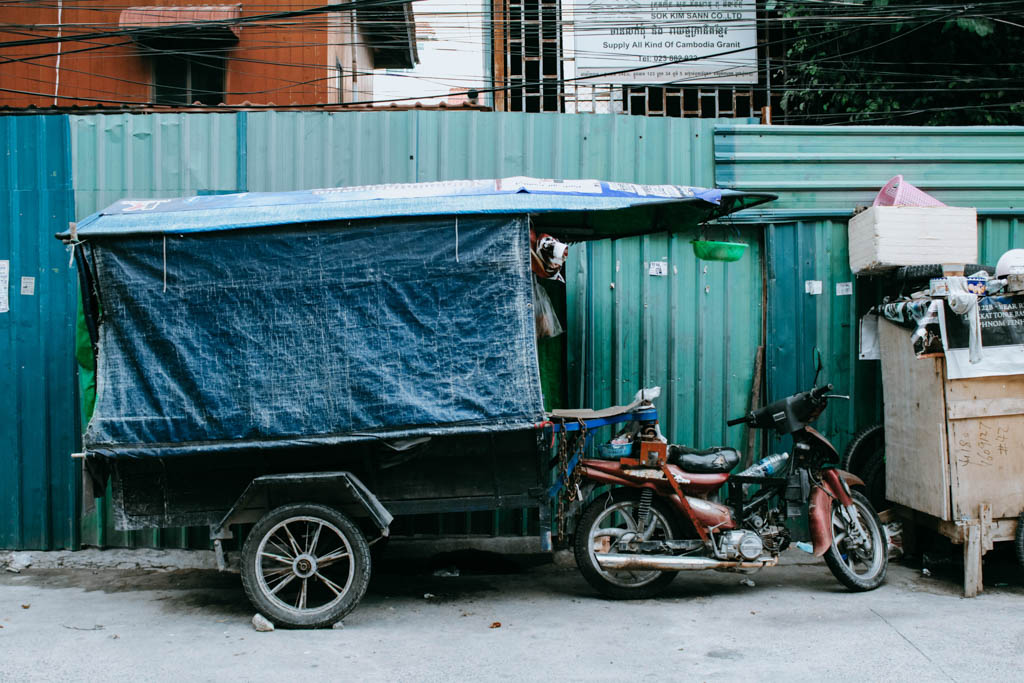
Ordering food in Cambodia
Rice and noodles are eaten for breakfast, lunch and dinner in Cambodia. A portion of fried rice or noodles costs from about a dollar, and you usually get condiments such as chilli and soy sauce so you can season it how you like. Cambodian food is delicious!
Fried Rice
You can say ‘bai chha’, pronounced BYE CHAR
Fried Noodles
Say ‘mee chha’, pronounced ME CHAR
Please
The word for please is ‘som’ (som) and you use it at the beginning of the sentence when you want to ask for something.
Best Cambodian Phrasebook
Everything you need to know: shopping, eating, transport, accommodation.
Flirting (or not) when you hear I love you in Cambodian
Cambodian men think it is fine to tell a woman that she is beautiful, even if they don’t know her. You shouldn’t feel threatened by this, as it generally doesn’t mean that they have any bad intentions. But it’s good to know the phrase, as well as when someones says I love you in Khmer, so that you can respond in the way that you want!
Pretty Lady
Srey sa’art (pronounced sruh-ee sa-ART)
Handsome Man
Broh sa’art (bro sa-ART)
I love you
khnyom srolanh neak (khnyom sro-LINE nehk)
You have travel insurance right?!
Don’t be a mug. Please don’t leave for your adventure without travel insurance. However careful you are, things can still go wrong. I’ve ended up in hospital in Russia, had stuff cut out of my arm in Vietnam and don’t even get me started on that time I was vomiting my guts up in Poland.
Do the right thing right now. Get a travel insurance quote.
Visa for Cambodia
Get your visa for Cambodia swiftly and quickly. Order your visa online here.
Comment Below!
What Cambodian phrases do you know?
Related Reading
Avoid the baby milk scam in Cambodia
Face to face with death in Cambodia
Eating beef and ants whilst dodging knives in Cambodia
Pin Me
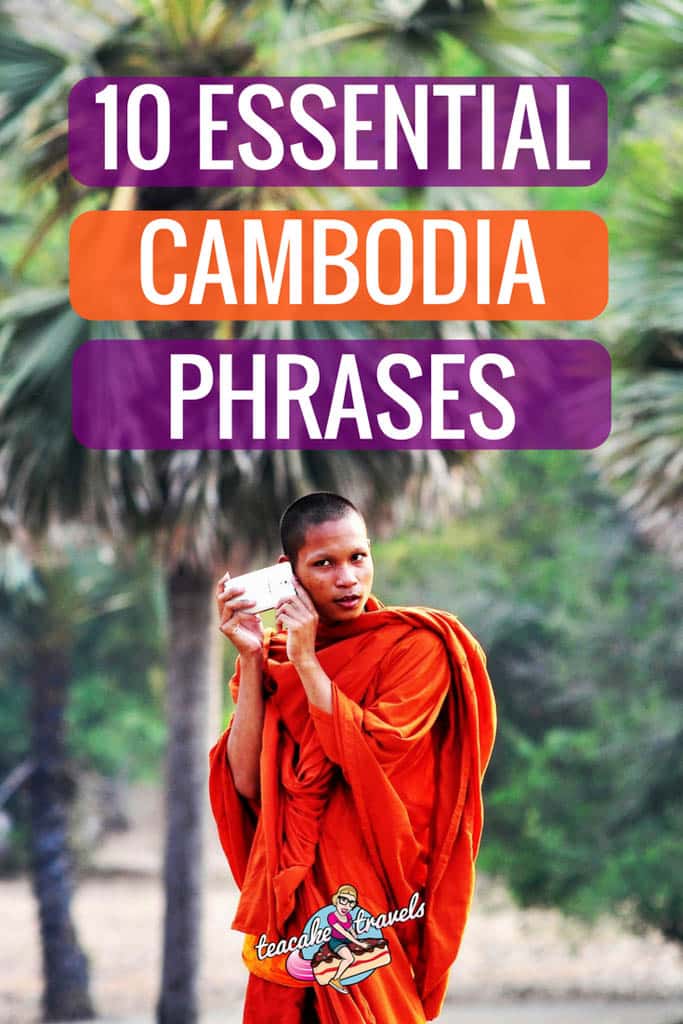
About the Author
Samantha Tame has just published the 2nd edition of her Cambodian Phrasebook which is available now on Amazon in print and for Kindle Fire! Order your copy from Amazon now.
Sammy Tame is a British-born ESL teacher who first went to Cambodia in 2013. Passionate about Khmer language and culture, she has written the Cambodian Phrasebook with her Cambodian partner Sam Neang. They now live in the UK with their twin daughters.

